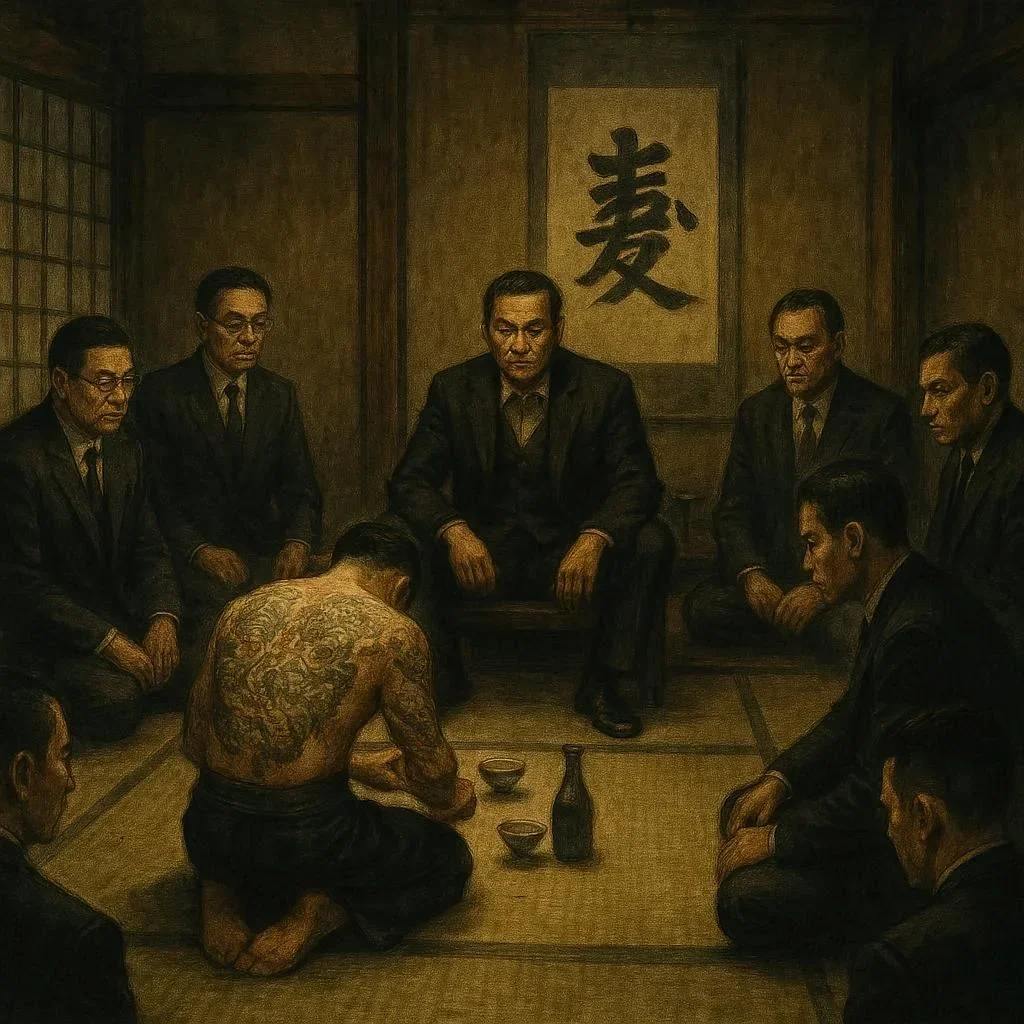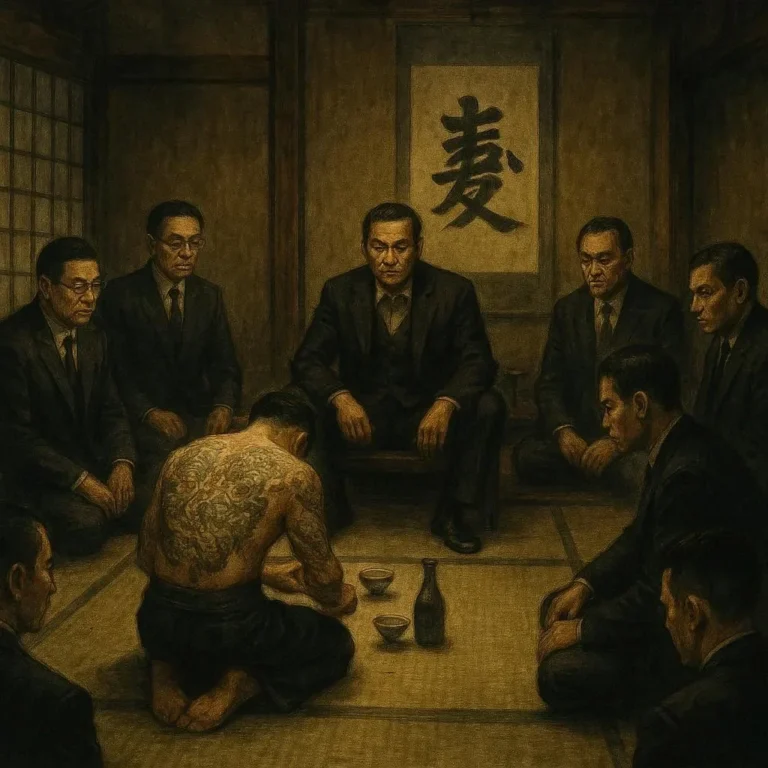505 views The Yakuza Code: Loyalty, Honor, and Disciplining Practices
The Yakuza, one of the most infamous organized crime syndicates in the world, operates on a strict code of conduct rooted in loyalty, honor, and discipline. While their activities are often shrouded in secrecy, the unwritten rules that govern their behavior are as intriguing as they are complex. This blog post delves into the Yakuza code, exploring its origins, key principles, and the disciplining practices that maintain order within the organization.
The Origins of the Yakuza Code
The Yakuza, also known as the Japanese mafia, traces its origins back to the Edo period (1603-1867). The code of conduct, known as giri and ninjo, was heavily influenced by the Samurai code, Bushido. These principles emphasize loyalty, honor, and discipline, which are still central to the Yakuza’s ethos today.
Initially, the Yakuza emerged as a group of outcasts, including gamblers, thieves, and ex-samurai, who formed their own social hierarchy. Over time, they developed a code that distinguished them from other criminal organizations, emphasizing loyalty to the group above all else.
The Core Principles of the Yakuza Code
1. Loyalty (Chū)
Loyalty is the cornerstone of the Yakuza code. Members are expected to prioritize the interests of the organization and their leaders above personal interests. This loyalty is absolute and unyielding, often tested through various trials and sacrifices. Betrayal is considered the gravest offense, punishable by severe consequences.
Within the hierarchy, a member’s loyalty is often demonstrated through rituals such as the sakazuki ceremony, where members drink sake from the same cup as their leader, symbolizing their commitment and allegiance.
2. Honor (Meiyo)
Honor plays a significant role in the Yakuza code. A member’s reputation and standing within the organization are crucial, and any action that brings shame or disgrace is considered unacceptable. Maintaining honor often requires adhering to a strict moral code, despite the illegal nature of their activities.
A member’s honor is closely tied to their willingness to uphold the group’s rules and traditions. This includes accepting punishment for mistakes and taking responsibility for one’s actions.
3. Discipline (Kō)
Discipline is another key aspect of the Yakuza code. Members are expected to adhere to a strict set of rules and protocols, both within and outside the organization. This discipline extends to every aspect of their lives, from their behavior in public to their interactions with other members.
Discipline also involves the acceptance of hierarchy and authority. The Yakuza operates on a rigid hierarchical system, with clear lines of command and respect for one’s superiors. Disrespect or disobedience towards a higher-ranking member is not tolerated.
Initiation and Hierarchy in the Yakuza
Joining the Yakuza is a solemn and ritualistic process. New members undergo a series of initiation rites designed to test their commitment and loyalty. These rites often involve symbolic gestures, such as the exchange of sake cups or the marking of the body with tattoos.
The hierarchy within the Yakuza is well-defined, with members organized into ranks based on their seniority, experience, and contributions to the organization. The leader, often referred to as the kaichō, holds absolute authority and is responsible for making key decisions.
Ranking members are expected to demonstrate unwavering loyalty to their superiors, while lower-ranking members must earn their place within the hierarchy through displays of courage, obedience, and dedication.
Disciplining Practices in the Yakuza
The Yakuza code is enforced through a series of disciplining practices designed to maintain order and uphold the organization’s values. These practices are often harsh and unforgiving, reflecting the严格 (strict) nature of the code.
1. Punishment for Disloyalty
Disloyalty is dealt with swiftly and severely. Punishments can range from physical reprimand to expulsion from the organization. In extreme cases, betrayal may result in death, serving as a stark reminder of the consequences of disloyalty.
2. Rituals of Atonement
Members who violate the code are often required to perform rituals of atonement. One such ritual is yubitsume, where the offending member severs part of their finger as a sign of remorse. This practice, though not as common today, remains a powerful symbol of the seriousness with which the Yakuza views its code.
3. Hierarchy and Respect
Respect for hierarchy is deeply ingrained in the Yakuza code. Members are expected to show deference to their superiors through specific gestures and rituals, such as bowing or using appropriate titles. Failure to do so can result in disciplinary action.
4. Conflict Resolution
Conflicts within the Yakuza are typically resolved through internal mediation, overseen by senior members. This approach ensures that disputes are handled in a manner consistent with the organization’s values. External conflicts, on the other hand, are often dealt with through more direct and forceful means.
The Modern Yakuza and the Code
Despite the changing times, the Yakuza code remains a central aspect of the organization’s identity. However, the modern Yakuza faces challenges in maintaining its traditional values in a rapidly changing world. The influence of modern technology, global communication, and shifting societal norms has led to some evolution within the organization.
Nevertheless, the core principles of loyalty, honor, and discipline continue to guide the Yakuza’s operations. The code serves as a unifying force, binding members together and reinforcing their collective identity.
The Historical Significance of the Yakuza Code
The Yakuza code offers a unique glimpse into Japan’s rich cultural history and the evolution of organized crime. While the organization’s activities are often viewed with suspicion and distrust, the code itself represents a complex blend of traditional values and modern adaptations.
Understanding the Yakuza code provides insight into the social dynamics and moral frameworks that shape the behavior of its members. It also highlights the enduring influence of historical traditions on contemporary organizations.
Conclusion
The Yakuza code, rooted in loyalty, honor, and discipline, is a fascinating yet enigmatic aspect of Japan’s criminal underworld. While the organization’s activities remain controversial, the code itself offers a compelling look at the principles that govern its members’ behavior.
As the Yakuza continues to navigate the challenges of the modern world, the code remains a central pillar of its identity. For those interested in the intricate dynamics of organized crime, the Yakuza code serves as a captivating subject of study and reflection.
Whether viewed as a relic of a bygone era or a living set of principles, the Yakuza code endures as a testament to the enduring power of loyalty, honor, and discipline.






